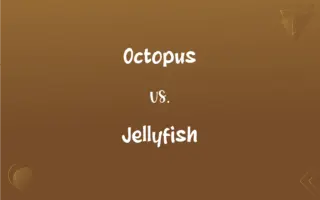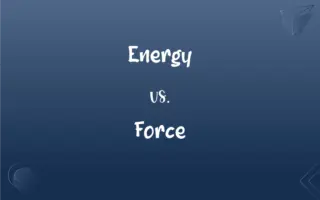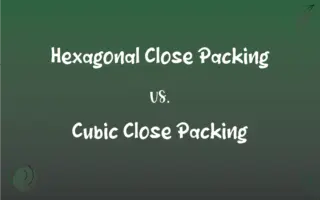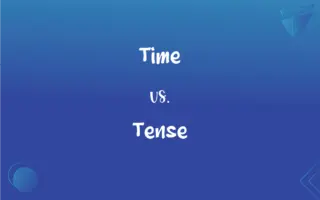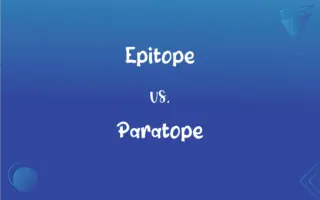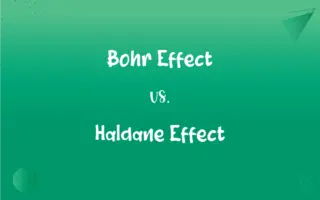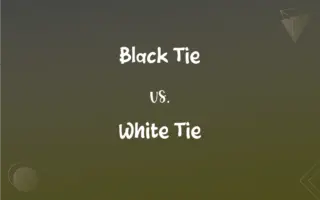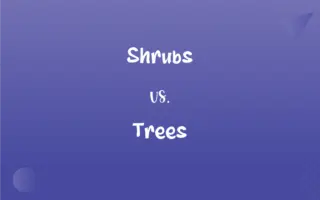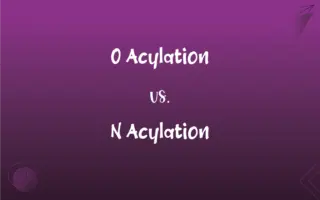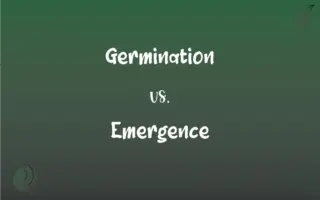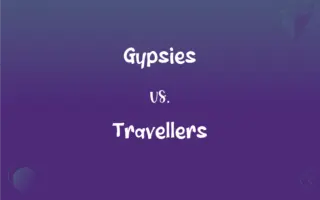Hornet vs. Wasp: What's the Difference?
Edited by Janet White || By Harlon Moss || Updated on October 5, 2023
Hornet is a large, stinging insect related to wasps. Wasp is a stinging insect, typically slimmer than hornets.
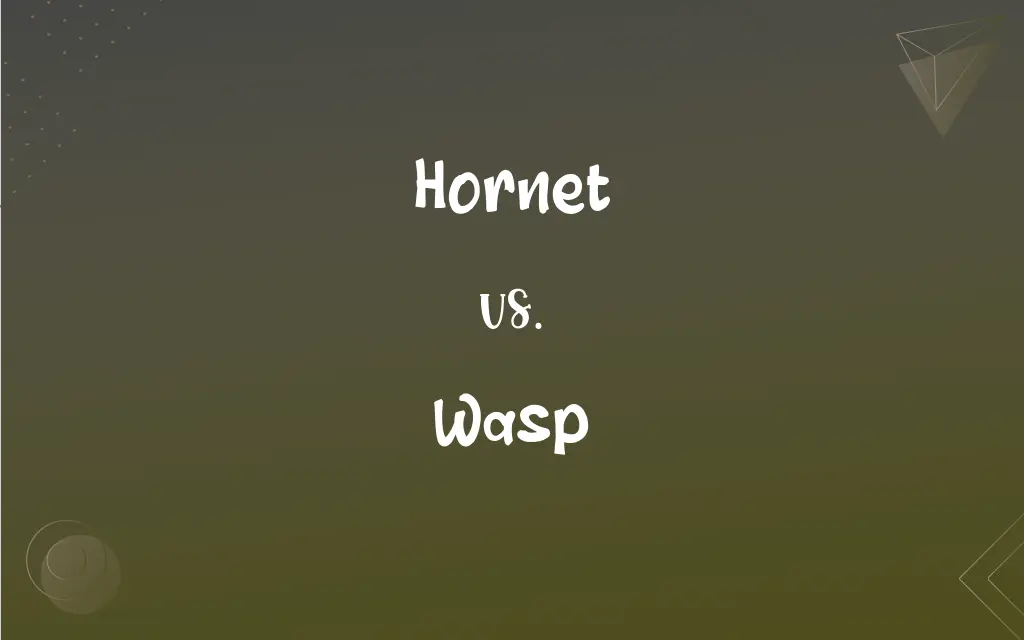
Key Differences
A hornet is notably recognized for its size and its black and white or brownish coloring. On the contrary, a wasp can be identified by its slender body and typically yellow and black patterns.
While both hornets and wasps can be aggressive when threatened, hornets are reputed to be the more formidable and persistent attackers. Wasps, though they can also be aggressive, often have a slightly less fearsome reputation.
The nests of hornets are typically aerial, commonly found in trees or under eaves. Wasps might also build aerial nests, but some species prefer to build their nests underground.
From a beneficial perspective, hornets and wasps play crucial roles in the ecosystem by controlling pest populations. Though similar, hornets tend to be more nocturnal in their activities compared to wasps.
Interestingly, hornets are technically a subset of wasps, signifying all hornets are wasps, but not all wasps are hornets. This is majorly due to differences in size and coloration.
ADVERTISEMENT
Comparison Chart
Size
Larger
Generally smaller
Color
Black and white/brownish
Typically yellow and black
Aggressiveness
More aggressive
Can be aggressive, slightly less than hornets
Nest Type
Primarily aerial
Aerial or underground
Activity Time
More nocturnal
Generally diurnal
ADVERTISEMENT
Hornet and Wasp Definitions
Hornet
Hornets play a role in pest control, preying on insects.
The hornet caught a sizeable insect and carried it back to its nest.
Wasp
A wasp is an insect known for its slender body and stinging capability.
The wasp hovered over the outdoor meal.
Hornet
Hornets are social insects, living in colonies.
A hornet’s nest can house hundreds of these insects.
Wasp
Wasps can be solitary or social, depending on the species.
The solitary wasp built a small nest in the shed.
Hornet
A hornet is a large, stinging insect related to wasps.
The buzzing of the hornet alarmed the picnic-goers.
Wasp
Wasps contribute to controlling pest populations and pollination.
A wasp landed on the flower, unintentionally aiding in pollination.
Hornet
Hornets often build their nests in trees or other high locations.
The hornet’s nest was carefully removed from the tree.
Wasp
Wasps are found worldwide and are particularly common in warmer climates.
The wasp flew away, seeking other sources of food.
Hornet
Hornets can be aggressive, especially when their nest is disturbed.
A swarm of hornets attacked after their nest was accidentally hit.
Wasp
Wasps can live in various habitats, including forests, deserts, and human areas.
A wasp entered the house through an open window.
Hornet
Any of various large stinging wasps of the family Vespidae, chiefly of the genera Vespa and Vespula, that characteristically build large papery nests.
Wasp
A white person of Protestant English or other Northern European ancestry, especially one belonging to the American upper class.
Hornet
A large wasp, of the genus Vespa, having a brown-and-yellow-striped body and the ability to inflict a serious sting.
Wasp
A member of Women's Airforce Service Pilots, organized during World War II as part of the US Army Air Forces to ferry aircraft and to test new aircraft. The organization was disbanded in 1944.
Hornet
A person who pesters with petty but ceaseless attacks.
Wasp
Any of numerous social or solitary hymenopterans of the suborder Apocrita, especially of the family Vespidae, that characteristically have a slender hairless body with a constricted abdomen, two pairs of membranous wings, a mouth adapted for biting or sucking, and in the females an ovipositor sometimes modified as a sting.
Hornet
A large, strong wasp. The European species (Vespa crabro) is of a dark brown and yellow color. It is very pugnacious, and its sting is very severe. Its nest is constructed of a paperlike material, and the layers of comb are hung together by columns. The American white-faced hornet (Vespa maculata) is larger and has similar habits.
Hornet
Large stinging paper wasp
FAQs
What is the primary color distinction between a hornet and a wasp?
Hornets are generally black and white or brownish, while wasps are typically yellow and black.
Can both hornets and wasps sting multiple times?
Yes, both hornets and wasps can sting multiple times because their stingers are not barbed like those of bees.
Are all wasps and hornets aggressive?
Not all, but some species of wasps and hornets can be aggressive, especially when defending their nest.
How do the sizes of hornets and wasps generally compare?
Hornets tend to be larger than wasps, with some species significantly so.
What is a noticeable difference between hornet and wasp nests?
Hornets typically build large, enclosed nests aerially, while wasps may build open or underground nests.
What roles do hornets play in our ecosystem?
Hornets help control pest populations and pollinate plants, contributing to ecological balance.
Is it true that all hornets are wasps?
Yes, hornets are a subset of wasps, meaning all hornets are wasps, but not all wasps are hornets.
How do hornets and wasps affect outdoor activities?
Hornets and wasps can disrupt outdoor activities due to their sometimes aggressive nature, especially when food is present.
What should I do if I encounter a hornet or wasp nest?
If you encounter a nest, keep a safe distance, do not agitate the insects, and consider contacting a professional for removal.
Do hornets and wasps only eat other insects?
While a major part of their diet includes insects, hornets and wasps also consume fruits, nectar, and human food.
Is it safe to remove a hornet or wasp nest on your own?
Removing a hornet or wasp nest can be dangerous and is generally best left to professionals.
Do wasps and hornets die off in winter?
In most wasp and hornet species, the colony, except for new queens, dies off in winter.
Are there any beneficial aspects of having wasps in the ecosystem?
Yes, wasps are valuable for controlling pest insect populations and pollinating plants.
Why are wasps often seen around human dwellings?
Wasps are attracted to human dwellings due to the availability of food sources like trash, open food, and sugary drinks.
Are hornets active during the nighttime?
Some hornets are more nocturnal and can be active during the nighttime, especially the Asian Giant Hornet.
Are hornets found worldwide?
Hornets are found in various regions worldwide but are most common in the Northern Hemisphere.
What is the lifespan of a typical wasp?
A worker wasp's lifespan is usually a few months, while a queen can live up to a year.
How does one identify a wasp sting?
A wasp sting is typically identified by immediate sharp pain, followed by swelling, redness, and itching at the sting site.
What should one do if stung by a hornet?
If stung by a hornet, wash the area, apply a cold compress, and consider antihistamines or pain relievers; seek medical attention if allergic reactions occur.
Can wasps provide any benefit to gardeners?
Yes, wasps can benefit gardeners by preying on pest insects, acting as a natural pest control.
About Author
Written by
Harlon MossHarlon is a seasoned quality moderator and accomplished content writer for Difference Wiki. An alumnus of the prestigious University of California, he earned his degree in Computer Science. Leveraging his academic background, Harlon brings a meticulous and informed perspective to his work, ensuring content accuracy and excellence.
Edited by
Janet WhiteJanet White has been an esteemed writer and blogger for Difference Wiki. Holding a Master's degree in Science and Medical Journalism from the prestigious Boston University, she has consistently demonstrated her expertise and passion for her field. When she's not immersed in her work, Janet relishes her time exercising, delving into a good book, and cherishing moments with friends and family.
